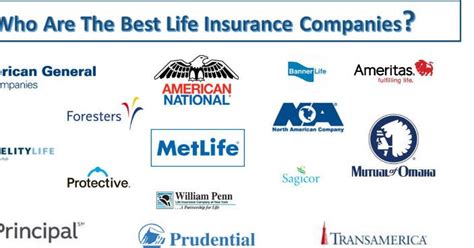Commercial Insurance Agent

In the world of business and commerce, safeguarding your assets and operations is of paramount importance. This is where the role of a Commercial Insurance Agent comes into play, serving as a vital link between businesses and the complex world of insurance. This expert guide delves into the intricacies of commercial insurance, shedding light on the skills, strategies, and real-world applications that define the role of a Commercial Insurance Agent.
The Role of a Commercial Insurance Agent: An Overview

A Commercial Insurance Agent is a professional who specializes in providing insurance solutions tailored to the unique needs of businesses. Their primary goal is to help companies mitigate risks and financial liabilities by offering comprehensive insurance coverage. This role is critical in today’s business landscape, where the potential for unforeseen events and liabilities is ever-present.
Commercial insurance covers a broad spectrum of policies, including property, liability, business interruption, workers' compensation, and more. The challenge for a Commercial Insurance Agent lies in understanding the specific risks associated with each business and crafting insurance plans that provide adequate protection without unnecessary expense.
Key Responsibilities of a Commercial Insurance Agent
- Risk Assessment: Agents conduct thorough evaluations of a business’s operations, assets, and potential liabilities to identify areas of risk.
- Policy Selection and Customization: Based on the risk assessment, they select and customize insurance policies to ensure the business is adequately covered.
- Client Education: Educating clients about insurance options, coverage, and the claims process is a crucial aspect of their role.
- Claims Advocacy: In the event of an insurance claim, agents act as advocates for their clients, ensuring a smooth and fair claims process.
- Market Research and Networking: Staying updated with industry trends and building relationships with underwriters and brokers is essential for offering the best insurance solutions.
The Skills and Expertise of a Commercial Insurance Agent

Becoming a successful Commercial Insurance Agent requires a unique skill set and an in-depth understanding of the insurance industry.
Technical Proficiency
Agents must possess a strong grasp of insurance principles, including the various types of coverage, policy exclusions, and the legalities surrounding insurance contracts. This technical knowledge is crucial for providing accurate advice and crafting tailored insurance solutions.
| Insurance Specialties | Description |
|---|---|
| Property Insurance | Covers damage or loss to the business's property, including buildings, equipment, and inventory. |
| Liability Insurance | Protects the business from claims arising from injuries or property damage caused by the business's operations. |
| Business Interruption Insurance | Provides coverage for lost income and ongoing expenses if the business is forced to shut down due to an insured event. |
| Workers' Compensation Insurance | Covers medical expenses and a portion of lost wages for employees injured on the job. |

Analytical and Problem-Solving Abilities
Commercial Insurance Agents often encounter complex risk scenarios. They must possess strong analytical skills to assess these risks accurately and devise effective insurance strategies. Problem-solving abilities are crucial when addressing unique or challenging risk situations.
Communication and Interpersonal Skills
Effective communication is key in this role. Agents must be able to explain complex insurance concepts in simple terms to clients, underwriters, and brokers. Building rapport and trust with clients is essential for a long-lasting professional relationship.
Real-World Applications: How Commercial Insurance Agents Make a Difference
Commercial Insurance Agents play a pivotal role in safeguarding businesses against various risks and potential financial losses. Here’s how they make a difference in real-world scenarios:
Risk Management for Small Businesses
Small businesses often face unique challenges when it comes to insurance. Commercial Insurance Agents can assess the specific risks of a small business, such as liability risks associated with product or service offerings, and recommend tailored insurance solutions. This ensures that small businesses are protected without incurring excessive insurance costs.
Protecting Businesses from Natural Disasters
Natural disasters like hurricanes, floods, or wildfires can cause significant damage to businesses. Commercial Insurance Agents help businesses prepare for such events by assessing the risks specific to their location and industry. They recommend insurance policies that cover property damage, business interruption, and other related losses, ensuring the business can recover and continue operations post-disaster.
Mitigating Liability Risks in High-Risk Industries
Industries like construction, manufacturing, or healthcare face higher liability risks due to the nature of their operations. Commercial Insurance Agents specializing in these industries thoroughly understand the unique risks involved. They provide insurance solutions that cover a wide range of potential liabilities, helping businesses in these sectors operate with confidence and peace of mind.
The Future of Commercial Insurance
The insurance industry is evolving rapidly, driven by technological advancements and changing business landscapes. Here’s a glimpse into the future of commercial insurance and the role of Commercial Insurance Agents:
Digital Transformation
The insurance industry is increasingly adopting digital technologies. Commercial Insurance Agents will need to embrace digital tools for risk assessment, policy management, and client communication. This includes utilizing AI and machine learning for more accurate risk predictions and personalized insurance recommendations.
Focus on Preventive Measures
While insurance provides financial protection, preventing losses is always preferable. The future of commercial insurance may see a greater emphasis on risk prevention strategies. Commercial Insurance Agents will play a key role in advising businesses on loss prevention measures, such as implementing safety protocols or adopting new technologies to mitigate risks.
Customized Insurance Solutions
As businesses become more specialized and unique, the demand for customized insurance solutions will rise. Commercial Insurance Agents will need to adapt their strategies to offer highly tailored insurance packages that address the specific risks and needs of individual businesses.
In Conclusion
The role of a Commercial Insurance Agent is vital in protecting businesses and their assets. With their expertise and strategic approach, they help businesses navigate the complex world of insurance, ensuring they are adequately protected while maintaining a competitive edge. As the insurance industry evolves, Commercial Insurance Agents will continue to adapt, innovate, and provide invaluable service to businesses of all sizes and industries.
How do Commercial Insurance Agents stay updated with industry changes and trends?
+Commercial Insurance Agents stay informed through a variety of means, including industry publications, conferences, and workshops. They also collaborate with underwriters and brokers to understand market trends and changes in insurance policies and regulations.
What is the process for becoming a Commercial Insurance Agent?
+The path to becoming a Commercial Insurance Agent typically involves obtaining the necessary licenses and certifications. This often includes passing state-mandated exams and completing relevant educational programs. Additionally, gaining practical experience through internships or entry-level positions can be beneficial.
How do Commercial Insurance Agents determine the right insurance coverage for a business?
+Commercial Insurance Agents conduct a comprehensive risk assessment of the business, considering factors such as industry, location, size, and specific operations. Based on this assessment, they recommend a combination of insurance policies that provide adequate coverage without unnecessary costs.



